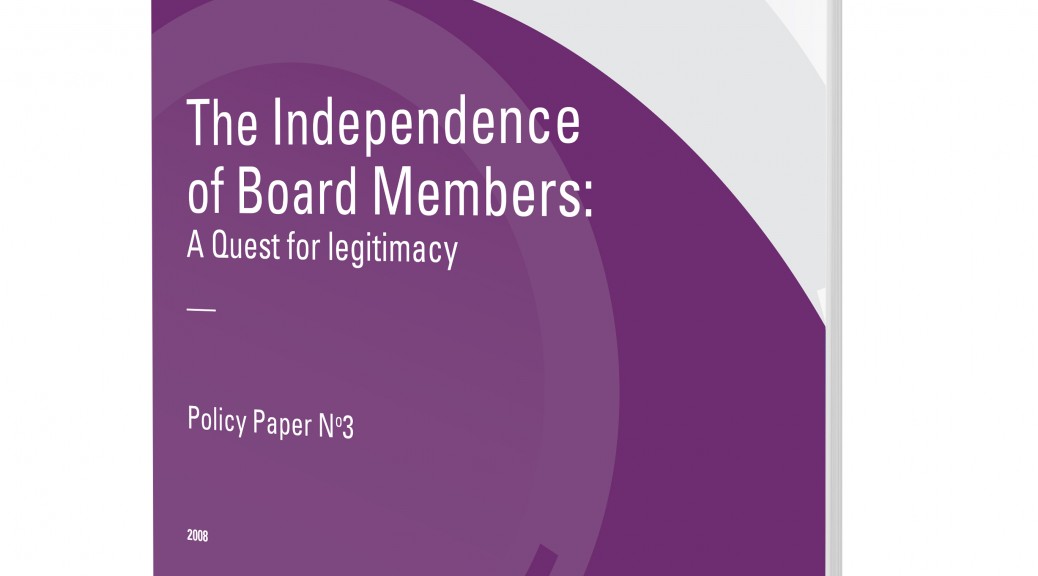[Caveat: This brief is submitted to the Competition Review Panel as a personal statement and does not necessarily reflect the opinions of the Institute or of its board of directors]
The strength and size of the latest wave of foreign takeovers of Canadian corporations has spurred a sharp debate about their costs and benefits to Canadian society.
For some, this latest wave is but a passing phenomenon, largely offset by Canadian firms taking over foreign firms. On that side of the argument, people wax euphoric about “global” financial markets, an irresistible force for good, dispensing benefits to every society it touches. They marshal all fragments of past evidence to persuade one and all that there are few problems, and many gains, arising from foreign takeovers.
Canada, they claim, should learn from, and imitate, its big brother to the south, “a country with a significantly more liberalised [takeover] regime than Canada’s.” Foreign takeovers are not the issue; Canadians are. They are sentimental, emotional and uninformed about foreign takeovers. Unbeknownst, they suffer from residual bouts of “economic nationalism”, “mercantilism”, “statism” and “commercial xenophobia”.
All of the above have found their way into the Conference Board’s recent term paper “Hollowing out”–Myths and Reality” (February 2008). Not surprisingly, people of sound mind and sober disposition tend to run for cover and from the issue.
The other side, to which we belong, rejects this narrow definition of the issue. We agree that markets are good. They are indeed the citizens’ best friends…when properly regulated. Unregulated markets, the financial ones in particular, may well be harmful to society’s welfare and the citizens’ pocketbook.
Located in a broader frame of reference, the current wave of foreign takeovers becomes a mere symptom, a harbinger of what is to come. First, we must share a historical reminder.
A reminder
In April 1990, Senate Bill 1310 of the Pennsylvania legislature, the strongest anti-takeover bill passed by any state, became law. The prime purpose of that bill was to block the Canadian Belzberg family’s attempted take-over of Armstrong World Industries, a Pennsylvania company.
The wave of hostile takeovers in the 1980s, fuelled by junk bonds, leveraged buy-outs, raiders of all sorts and “green-mailers”, triggered legislative action in some thirty states in the Land of Free Markets. These anti-takeover legislations vary from state to state but they all aim at shifting the balance of power to the board of directors. Even in the investor-friendly United States, governments acted to control “hostile” takeovers.
The nationality of these raiders or hostile bidders was of little consequence as most were American outfits trying to takeover American companies. The governments of Pennsylvania, Indiana, Delaware, Ohio and many other states, believed, and were strongly supported by their population, that these hostile takeovers were not in the best interest of companies nor of society at large. It is certainly not a case of Americans suffering from “economic nationalism” or “commercial xenophobia”, unless of course the residents of the state of New York are considered foreigners in the state of Pennsylvania.
Ever since American states enacted these laws, the financial community and various economists have lamented the “discount” in share value that results from such protection from takeovers.
Yet, these laws are still very much on the books. They empower a company’s board of directors to reject an offer to buy the company if they deem that it is not in the long-run interest of the company. In some states, they may (in two states, they have to) consider the impact of the proposed takeover on all stakeholders (employees, creditors, suppliers, the community).
At this very moment, Microsoft is keen on buying Yahoo, a company incorporated under Delaware laws and without a staggered board. In the United States, that is the most propitious circumstance for a would-be acquirer. Yet, the board of Yahoo has rejected the Microsoft bid (which offers a 62% premium over the share price before the announcement), declaring that it “substantially undervalues” Yahoo (The Wall Street Journal, February 11, 2008).
That may be a negotiating stance but the fact that the board of directors can reject the bid gives them some leverage in extracting a better price. That is in the interest of all shareholders. The alternative to negotiation is unappealing for Microsoft. It would have to engage in a proxy fight to get its nominees elected to the board of Yahoo. Imagine if Yahoo had chosen to stagger the election to its board of directors over three years!
Compare this to the Canadian situation, in the Alcan-Alcoa case for instance. Alcan’s board of directors could not have rejected outright Alcoa’s hostile bid. It had to let the bidder make its offer directly to its shareholders, who may well have accepted the offer, in spite of the board recommending against it.
Alcoa is incorporated in Pennsylvania. Here is what an American legal scholar writes on the subject of the Alcan-Alcoa battle: “The effect of all this [the Pennsylvania anti-takeover statutes] would be to permit Alcoa to effectively undertake a “just say no” defense to any Alcan pacman bid [i.e. a counter-offer by Alcan to buy Alcoa]… Compare this to Quebec [i.e. Canadian] law, which permits Alcan to keep its poison pill for only a short period of time and has similar time limitations on other explicit anti-takeover maneuvers.” (Steven M. Davidoff, May 16th, 2007)
In addition, Alcoa, typical in that respect of some 60% of companies in the Standard and Poor’s 500, has a staggered board, which means only a third of directors are up for election every year. That is a very effective measure against unwanted takeovers, a measure much decried by institutional investors.
Where again does one find the more permissive, “liberalized”, takeover regime? In Canada or in the U.S.?
In Canada, once a company is “in play” [i.e. an offer to buy the company has been received from a credible entity], the board’s role is limited. It must organize a proper auction for the company and, in the end, recommend that shareholders accept or reject the best offer. Shareholders may disregard this recommendation. If they hand in their shares in sufficient number, the deal is done.
Anytime a company is put “in play”, by decision time, a large percentage of the shares will be in the hands of arbitrageurs and other hedge funds. They will play a significant role in deciding the fate of the company; but their motivations are simple and well known: make sure the buyer likely to offer the most money in cash is lined up and go for it. That has happened in the case of Falconbridge and Inco. It is the way it will work for years to come.
The Canadian debate should not be focused narrowly on foreign takeovers but more broadly on who should decide the fate of a company and through what process. Canada does not need to imitate the actions taken some twenty years ago by these American states, though we should draw lessons from them. We need to define the proper legal framework for our own circumstances and for our own time.
That debate should take into account two important aspects missing from the current discussion:
The transformation of global financial markets over the last twenty years.
The role of stable ownership in developing internationally competitive companies.
[…] Read more



